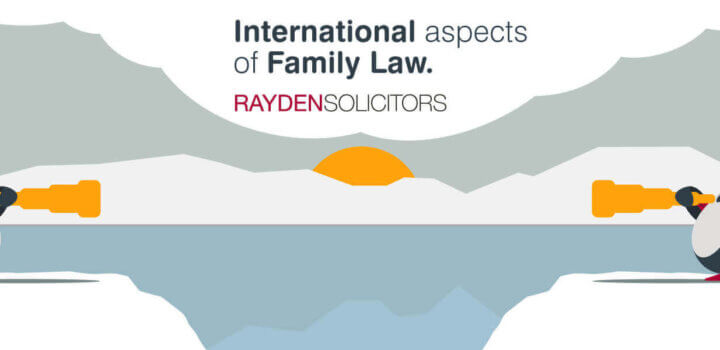

Experienced experts in complex financial arrangements
Division of assets following the breakdown of a relationship can be more complicated when some of the assets are held in the name of another company, another person and/or offshore.
It is possible for a trust to be varied (particularly if it is created/changed after marriage) and it is often possible to have orders made that deal with assets held offshore.
The most important issue is to ensure that the full position is considered and that any steps taken are cost-effective, pragmatic and proportionate. The sooner expert advice is obtained, the better as there can be steps that can be taken to secure disclosure and/or cooperation from the trustees.
Offshore assets and divorce
A person isn’t usually trying to deceive their ex-partner by having offshore assets. There may be (or have been) sound financial reasons why steps were taken to have assets dealt with by different taxation schemes. This will however involve different jurisdictions and so there will be need to be a combined approach to ensure that an appropriate strategy is put into place.
Pension plans abroad can create complications due to foreign pension schemes being outside the jurisdiction of an English court. Whilst it is sometimes possible to enforce an English Order, this is not always the case and so careful planning is required prior to the conclusion of any financial negotiations.
How we can help
Our team has extensive experience in dealing with:
- Offshore trusts
- Offshore property ownership
- Offshore employee benefit trusts
- Foreign pensions
Family trusts and divorce
A family trust may have been set up to pass assets down from one generation to another, often to save on taxes. If you or your ex-partner have a beneficial interest in a trust, it has to be disclosed. This does not automatically mean that the trust will vulnerable to an order by the Court, but it will avoid criticism from the Court for a failure to provide full and frank disclosure.
There are many different types of trusts and they will each be treated differently so you will need a family trust solicitor to help advise upon the terms and affect insofar as any relationship breakdown is concerned. One of the most common ways to ensure that a family trust is unaffected by a relationship breakdown is through a prenuptial agreement or postnuptial agreement, specifying that the family trust is separate property.
Rayden Solicitors have a great deal of experience in dealing with assets that have been placed offshore or are otherwise held in trusts or partnerships, whether legitimately or illegitimately.
We can bring together a team of experts to ensure that the courts are able to make a considered decision in relation to the true extent of the assets involved in your case.
Rayden Solicitors is committed to equality and diversity and in doing so supports and advises all members of our community.
Family Trusts, Partnerships and Offshore Assets in Divorce FAQs
Do trusts protect assets from divorce?
Trusts can protect assets in the event of a divorce and are intended to do so, however, this is not always guaranteed. Prenuptial and postnuptial agreements drawn up under expert legal advice help to ensure that a family trust remains separate property in a divorce.
What happens to a family trust in a divorce?
Financial interests of both partners have to be disclosed in divorce proceedings, which means that family trusts can be vulnerable in a divorce. Court orders may be made against a divorcing partner which will have a significant financial impact on trusts. A prenuptial or postnuptial agreement can help to ensure family trusts are protected.
Can you hide assets in a divorce?
Hiding assets during divorce proceedings is not permitted and is taken very seriously by the courts under UK law. People who hide assets may face penalties including having to pay the other partner’s legal costs or receiving a less favourable financial settlement.
We are here to listen
If you would like to arrange a first meeting or have any questions, please contact us or fill in the enquiry form below.











